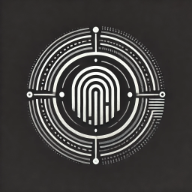Secure Your Legacy
At The Digital Heir, we urge you to secure access to your digital assets—so your loved ones can access them when you’re no longer online. It’s as easy as one, two, three—login, encrypt your credentials, instructions, or even a heartfelt letter, and add your heir’s contacts.
You have full control: decide how we monitor your activity, where and when you receive check-in messages, and the specific scenarios that trigger the release of your data to your heir. This way, your crypto wallets, exchange accounts, and offshore savings won’t vanish into the void, leaving no one to claim them.
After all, as Mikhail Bulgakov wrote in The Master and Margarita, “Manuscripts don’t burn.” Neither should your legacy.
Start now for free
FAQ
The Digital Heir is a platform that safeguards your important digital information—such as login credentials, crypto wallet keys, or other sensitive data—in a secure, encrypted “note.” We periodically check your activity (via social media logins, WhatsApp, email, or whatever you configure). If you remain inactive past a certain threshold and don’t respond to our confirmation messages, we release a secure link to your designated heir. They can only unlock your information by correctly answering your secret questions.
Yes. All your data—along with secret questions and your heir’s contact details—is encrypted before it’s stored. Contacts and account fields are encrypted at rest on our servers using libsodium (XSalsa20-Poly1305). The Envelope uses a separate client-side encryption scheme (AES-256-GCM + Argon2id + HKDF + KMS wrapping) and can only be decrypted with the correct secret answers. We never store your security answers or derived keys; they exist only in your memory. Once encrypted, your sensitive information remains locked until the correct answers are provided.
No. Our service is entirely independent of local or national laws regarding inheritance. We verify your well-being through automated checks—if you don’t respond for a set period, the Envelope is released to your heir. There’s no need for a death certificate or other legal paperwork.
You define a “Pipeline” of actions in your account settings—this can include checking your “last seen” status on social media or sending you messages via email, WhatsApp, or SMS. If you fail to respond to these checks within the time intervals you choose, the system escalates through the next steps. Once all attempts fail, we assume you’re no longer available, and we send a link to your heir so they can try to decrypt your note.
No. You can add your heir’s contact details (email, phone, etc.) without informing them. They don’t need to sign up or do anything unless the system determines it’s time to release your note. At that point, they’ll receive instructions on how to decrypt it—by answering your custom secret questions.
If your heir can’t provide the exact answers, the Envelope stays locked. We allow limited attempts—if none are successful, the data remains inaccessible. This design prevents unauthorized access and ensures only someone who truly knows your shared secrets can unlock your note.
There is a small monthly fee (a few dollars per month) for continuous coverage. Think of it like an insurance policy for your digital assets. If you stop paying, your Pipeline will eventually be disabled after a grace period, and your secure envelope won’t be released to anyone.
Currently, each account is limited to one secure note (“envelope”). That note can contain up to 10,000 characters of text, which you can use to include any credentials, instructions, or messages you wish. If you want multiple notes, you’d need to register additional accounts.
Your main password is just for logging into the service; losing it doesn’t automatically compromise your encrypted data. However, if you forget your security question answers, no one—including us—can ever decrypt your note, because we don’t store those answers anywhere. Always keep them safely in mind (or in a secure place).
Absolutely. You can log into your dashboard at any time to edit your secure envelope (decrypt it first by providing your secret answers), change your heir’s contact information, or modify the Pipeline’s escalation steps. Any changes require you to re-encrypt your data, so remember your answers when updating.
Absolutely. We believe in transparency and trust. You can find a link to our GitHub repository in the footer of our website. Feel free to explore the code, review how it has evolved over time, and see how we’ve implemented security measures. We encourage open scrutiny to ensure that what we say matches what our software actually does.
Yes—under normal conditions, it is virtually impossible for an unauthorized person to decrypt your data. We never store your secret answers, and only the specific contacts you designate will even receive a link to your Envelope. Without the correct answers to your questions, no one (not even us) can unlock your note. Maybe after reading all this, you’re still not 100% comfortable entrusting us with your most sensitive secrets. That’s okay. You could just use our service as a kind of ‘middleman’ or secure pointer—for instance, you might only include clues about where the real information is hidden or which book on your shelf contains the details. Then, only someone with the right answers will unlock those hints at the right time.
When it comes to encryption, nothing is 100% unbreakable if an attacker had unlimited time and super-powerful computers. By “under normal conditions,” we mean that if you choose strong secret answers, keep your devices secure, and we correctly use modern encryption methods (such as XSalsa20-Poly1305 for data at rest and our client-side Envelope scheme using AES-256-GCM, Argon2id, HKDF, and KMS wrapping), then breaking your data would require resources far beyond what is realistically available. “Virtually impossible” reflects that, in everyday use, the likelihood of a successful attack is so small that it isn’t a practical concern—although, in theory, no system is perfect.
Even if our servers were physically stolen or hacked, everything we store is strongly encrypted. Crucially, we never keep your secret answers, so an attacker only gets encrypted data with no practical way to unlock it. As long as your secret questions and answers remain known only to you (and eventually your heir), your Envelope stays secure—regardless of what happens to our hardware.
At present, modern encryption algorithms such as XSalsa20-Poly1305 and AES-256-GCM remain extremely secure against all known classical computers. Large-scale quantum computing could change the cryptographic landscape in the future, but today no publicly known quantum machine can feasibly break these schemes. If quantum-resistant encryption ever becomes necessary in practice, we will adapt our cryptography accordingly.
